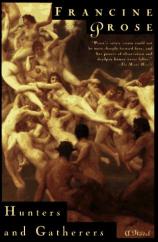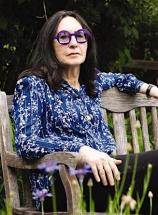Reading Group Guide
Discussion Questions
Hunters and Gatherers

1. We observe the action -- and Martha herself -- through Martha's own point of view. Do you think that Martha's vision of herself is accurate, or is it distorted? To what extent has her self-image been constructed by Dennis and other lovers? Martha despises what she sees as her "starchy literal-mindedness, her unintuitive narrowness" (p5). Why does she see herself in this way, and is she correct to do so?
2. Why is the skeptical Martha initially drawn into the group, and what makes her stick with it? Do you think that the kind of emotional neediness she exhibits is characteristic of people who join such groups?
3. How much of these women's "spiritualism" stems simply from their rage against men? Which of the women have suffered real hurt at the hands of men? Martha suspects that they "had all learned to distrust and fear" love. Why did this happen? What is it about the Goddess religion that soothes this hurt and anger?
4. "Imagine if we could time-travel back to the matriarchal era when women ran the world and everyone lived in peace" (p.21), Isis enthuses. What might a world run by women really be like? Does the novel imply that it would be different, or better than one run by men? Is the "Darwinian scramble of daily life at Mode "(p.18) -- "a misogynist's nightmare of a matriarchal society" (p.104) -- really indicative of what a women-centered society might turn into, or is Prose's message more hopeful?
5. Why does Hegwitha tell Martha that her symptoms have returned, and why does she decide not to tell the other women, even letting them pray for her continued remission? What does her decision to go on the trip rather than to get medical treatment in New York signify?
6. "Men despise female bodies, they're the ones who have made us ashamed" (p.26). Does Prose imply that this is simply New Age foolishness, or that there is some truth in it? What is your own opinion on the subject?
7. The Goddess religion "is supposed to be nonhierarchical," says Hegwitha. "Power's not supposed to matter, we're all priestesses together" (p.12). The women, of course, do not turn out to be immune from the lure of power. What does power mean to them, and how do their ideas of power and hierarchy differ from those of men?
8. There is much talk among the women, especially Diana, about a "vision quest." Does such a quest finally occur? If so, what form does it take?
9. The Goddess women idealize hypothetical "wise women who live in harmony with Turtle Earth, women respected in their tribal cultures, passing wisdom from mother to daughter" (p.100). How does this ideal of the mother-daughter relationship between Freya and Sonoma, or between Martha and her mother? Do Freya and Sonoma manage to make genuine progress together at the end? Does the book end on a hopeful note for them?
10. Martha doesn't burn her father's name in Isis's wok. How has the character, and the death, of Martha's father affected her life? What does his felt presence in the cab of T-Bone's truck communicate to her? What message about men and about herself does Martha's Memory of her father, and her meeting with T-Bone, convey?
11. Commenting on the phenomenon of Goddess worship, Francine Prose has said, "I've been made uneasy by the goofy intensity of these rituals-and at the same time been deeply moved by these women's need for a religion in which they can feel included." Many real-life Goddess worshippers, as well as the ones in the novel, come from conventional religious backgrounds. Why do many women feel that traditional religious celebrations, like those found in Catholicism, Judaism, and Protestantism do not address their spiritual needs and concerns?
12. "Maybe Martha's existence . . . was nothing more than a case of predetermination by DNA. Given the choice, Martha would rather believe in Isis and her vision than in that grim reductive version of life" (p.90). Since her father's death, Martha has been an atheist. Why does she finally find atheism to be inadequate and lonely? What conclusions, if any, does Prose draw about religious skepticism?
13. Does the ending of the book, in which Sonoma has a genuinely mystical experience, validate New Age ritual? Does it validate religion in general?
Hunters and Gatherers
- Publication Date: January 15, 1997
- Paperback: 256 pages
- Publisher: Holt Paperbacks
- ISBN-10: 0805048960
- ISBN-13: 9780805048964







